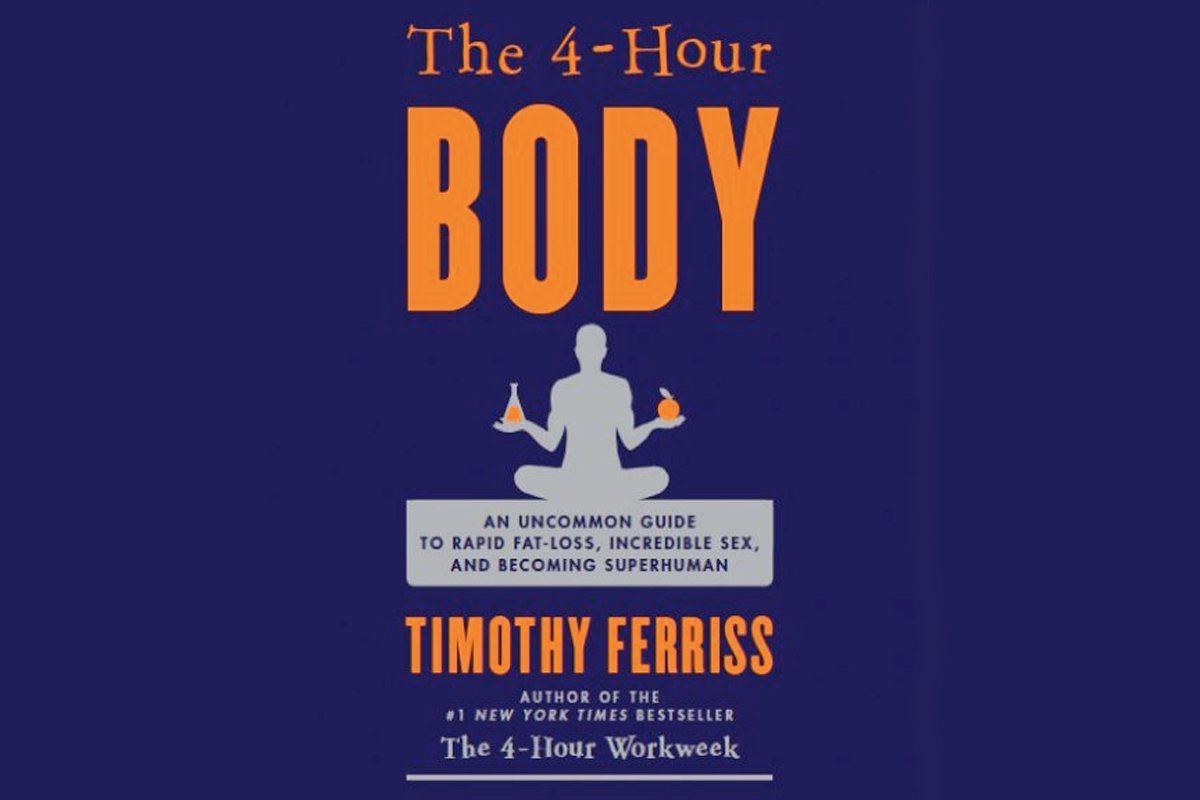
Tim Ferriss is one of those personalities you want to hate, a guy so wildly successful it's almost comedic. His productivity manifesto, The 4-Hour Workweek, was an instant New York Times bestseller when it debuted in 2007, despite Ferriss's not knowing the first thing about publishing. He then tried angel investing, and helped fund projects like Twitter. How about a position at Princeton? Sure. Setting a Guinness world record in tango? He's done that, too.
Ferriss is the epitome of a life hacker: someone who can approach a supposedly experts-only subject and with a few tweaks turn it on its head. His latest target is personal health: The 4-Hour Body is his attempt to understand the human machine with a dose of science and a whole lot of data crunching. He's just the right guy for the task—he's recorded almost every workout since age 18, performed more than 1,000 blood tests, and boasts drawers full of gadgets like pulse oximeters and REM sleep trackers. Ferriss's willingness to be a guinea pig produces some fascinating results. Using a glucometer implanted in his abdomen (ouch), he discovers that food doesn't move into the bloodstream until hours after a meal—thus rendering useless the pre-workout energy bar—and that both cinnamon and lemon juice can quickly lower your glucose level.
Ferriss is on the bleeding edge of a new trend in self-tracking and experimentation. "It's happening because almost everyone has a data-gathering device," he says. "It's never been easier to gather your own data in an actionable way." Case in point is one of his former investments, DailyBurn.com, which tracks your diet and workout sessions using an iPhone. Other sites such as CureTogether.com let you open-source clinical trials, so you can see which do-it-yourself experiments work. Meanwhile, new organizations like the Quantified Self and the Immortality Institute are connecting self-experimenters who want to trade data in a centralized fashion.
Much of The 4-Hour Body is counterintuitive. Want to lose weight? Ferriss says to eat more and work out less (there are caveats, of course: you have to stick to certain dietary parameters). Indeed, he can come off sounding like a used-car salesman: one of his biggest selling points is that he gained 34 pounds of muscle, lost four pounds of fat, and decreased his cholesterol from 222 to 147 in just 28 days on four total hours of gym time. Although the book makes this sound doable for anyone, Ferriss quickly explains to me that he has an obsessive level of attention to detail. "Do I think the average person will do this? They won't. They won't eat enough. It's very hard to do on a slow-carb diet."
You want to doubt the science. He's a big proponent of the quick fix: he advocates using naringenin, a molecule found in grapefruit, to extend the fat-burning half-life of coffee; ginger to gain muscle; huperzine to ramp up your REM sleep. In one chapter, he rails against the health risks of carrying a cell phone and offhandedly claims in another that it may be possible to change your muscle-fiber type.
Yet much of what he claims is backed by research from journals he regularly reads, like Exercise and Sport Sciences Reviews, although some of the results are based on one-off projects or case studies that are decades old. Ultimately, the genius of this book is that self-experimenters can share their data online and decide for themselves what works. Just take what he says with a grain of salt, or was it naringenin?
Uncommon Knowledge
Newsweek is committed to challenging conventional wisdom and finding connections in the search for common ground.
Newsweek is committed to challenging conventional wisdom and finding connections in the search for common ground.
About the writer
To read how Newsweek uses AI as a newsroom tool, Click here.








